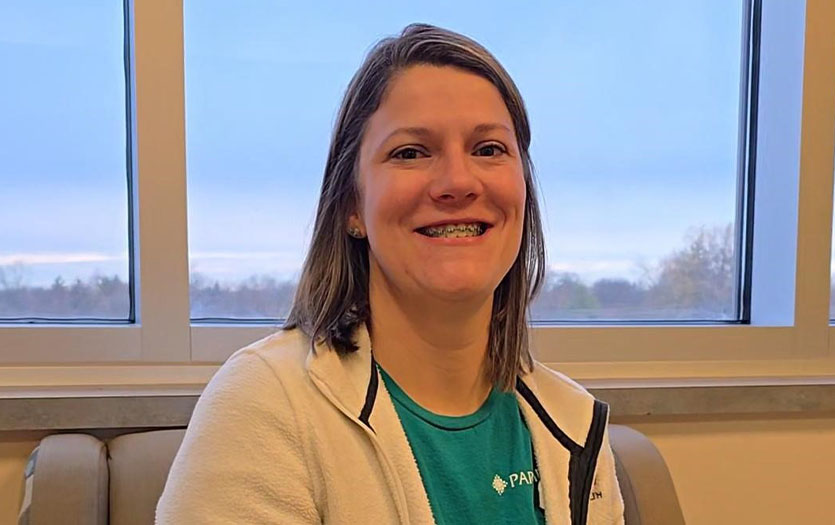
Few people would argue with the declaration that 2020 has been stressful. While young children might experience these changes one way, and adults another, teenagers are also shouldering the uncertainty and risks of the past several months. Andrea Lahrman, FNP, PPG - Internal Medicine & Pediatrics, clues us in to some of the unique ways this population might express their emotions and offers some guidance for parents who wish to help their child.
What are some of the unique stressors teenagers are facing in 2020?
During this COVID-19 pandemic, they are facing the evolution of restrictions, shut downs and unpredictable changes to their day-to-day activities, like work, sports, extracurricular activities and clubs. There is a lack of in-person socialization, conversation and learning. All of this on top of the newer generation of social media platforms and influencers who are impacting teens mentally and physically. I believe teens are exposing themselves to body shaming, FOMO, unrealistic expectations and societal/media fear whether they realize it or not. COVID has placed them at a greater risk for isolation. Many teens, and even adults, aren’t having “healthy” time to themselves during isolation, and they are using social media and video chatting to stay connected.
What are some signs of depression parents should watch for?
A big one is isolation – avoiding dinner, family time or not wanting to come out of their bedrooms. Also, if they stop wanting to take care of themselves. Maybe they lose interest in grooming in regards to basic hygiene. Or the opposite. Teens are very smart. Excessive attention to or over indulging their looks, image, etc. may be their way of covering it up and putting on an image that they feel others want to see. In turn, their depression/anxiety is hidden. It comes in all shapes and sizes.
Parents should be having daily quality conversations with all of their kids and vice versa. We are so busy, just taking five minutes or more as a family for important individual conversations can allow open discussion. Teens need parents more than they may show it. It’s hard for people to talk! Take down the barrier of fear, judgement and superiority and listen to your kids. They need to feel safe, trusted and heard. It’s something we all need to work on as a society to slow down when it comes to those who mean the most. Typically, there are a lot of bottled up feelings to tap into.
What are the dangers of not addressing these feelings your teen is experiencing?
It’s a snowball effect, and hard to predict. Everyone is different. We all have scars and past experiences that also play a part in how we see and deal with external stimuli. Something as simple as no one talking to them at lunch and assuming no one likes them, or comparing themselves to social media posts can cause a ripple effect. Sometimes we see this expressed as isolation, social media posts, nonverbal cues, acting out or slipping grades.
In some cases, this can turn into needing an outlet that is physical, meaning self-harm (cutting), hitting or throwing objects. In the worst cases we see suicidal thoughts, wishing they wouldn’t wake up or even planning or attempting to kill themselves. Parents may not have any idea their child is having these thoughts. Any mention of this should be taken with all seriousness, in any situation.
How should parents approach their teen?
Parents should always be as nonthreatening as possible, which is easier said than done. Parents need to be vulnerable as well. Teens forget that their parents used to be their age. Parents also need to keep that in mind. Break down barriers in small chunks of quality time spent alone with your child. Start with just making that time. Plan to do something they would enjoy! Go grab a treat or go for a walk.
What is the role of social media and smartphones and when should parents intervene or set parameters?
This discussion certainly elicits an eye roll and defensive body language from most teens, but it’s really overwhelming for all ages. It doesn’t fall to just one person. Monkey see, monkey do. I strongly believe in mutual trust, boundaries and open discussion about all social media accounts. Sit down and go through the functionality of each channel, including security settings, privacy, etc. Just because “everyone is doing it,” it doesn’t mean they’re all doing is safely.
Look at screen time reports. I strongly believe in parents being friends or following their kids on social media accounts or if a parent asks to look at it, it should not be an argument. Teens need consistency with rule following here, just like everywhere else.
We are all guilty of staring at our phones too much. It’s a bad habit we need to work on, and no one is perfect, but setting a good example is a good place to start. Maybe everyone puts their phones in a basket when they get home or you designate certain minutes of the day as “free time” when they are free to use their screens. Have a central charging station in a common area or your bedroom. If someone needs an alarm clock or reminder there are other options for that. It’s OK to be less reliant on your phone.
Make family challenges. See who can power down one before bed or take a 1-2-day screen vacation. Show them that they will survive. They just have to try.
How can parents empathize with their teen and the stressors they are facing?
It sounds cliché, but put yourself in their shoes. Don’t compare their teen years to when you were a kid. Just LISTEN. Don’t say a word. Really listen. Just be there. I find that the more I can listen with no distractions, judgement, comparison to prior events or expectations, the better the outcome. I just need to be present.
Don’t make it an interrogation. You want to be able to approach one another, even if the conversation isn’t the easiest. And when all else fails, hug each other.
No one really likes to talk about their feelings. The hard stuff isn’t easy but we have to bridge the gap to really understand each other.
Parents aren’t perfect either. We have to set a good example. If we want our kids to take breaks from screens, we need to as well. We all need to live more in the present, look around and see our blessings. They could be gone in a blink of an eye. Find gratitude in one another.
Resources
If you have concerns about your child, one of their friends or yourself, consider connecting with one of these trusted resources.
Parkview Behavioral Health HelpLine
800-284-8439
260-471-9440
Look Up
Lookupindiana.org
800-284-8439
Or text LOOKUP to 494949
National Suicide Prevention Lifeline
suicidepreventionlifeline.org
988



